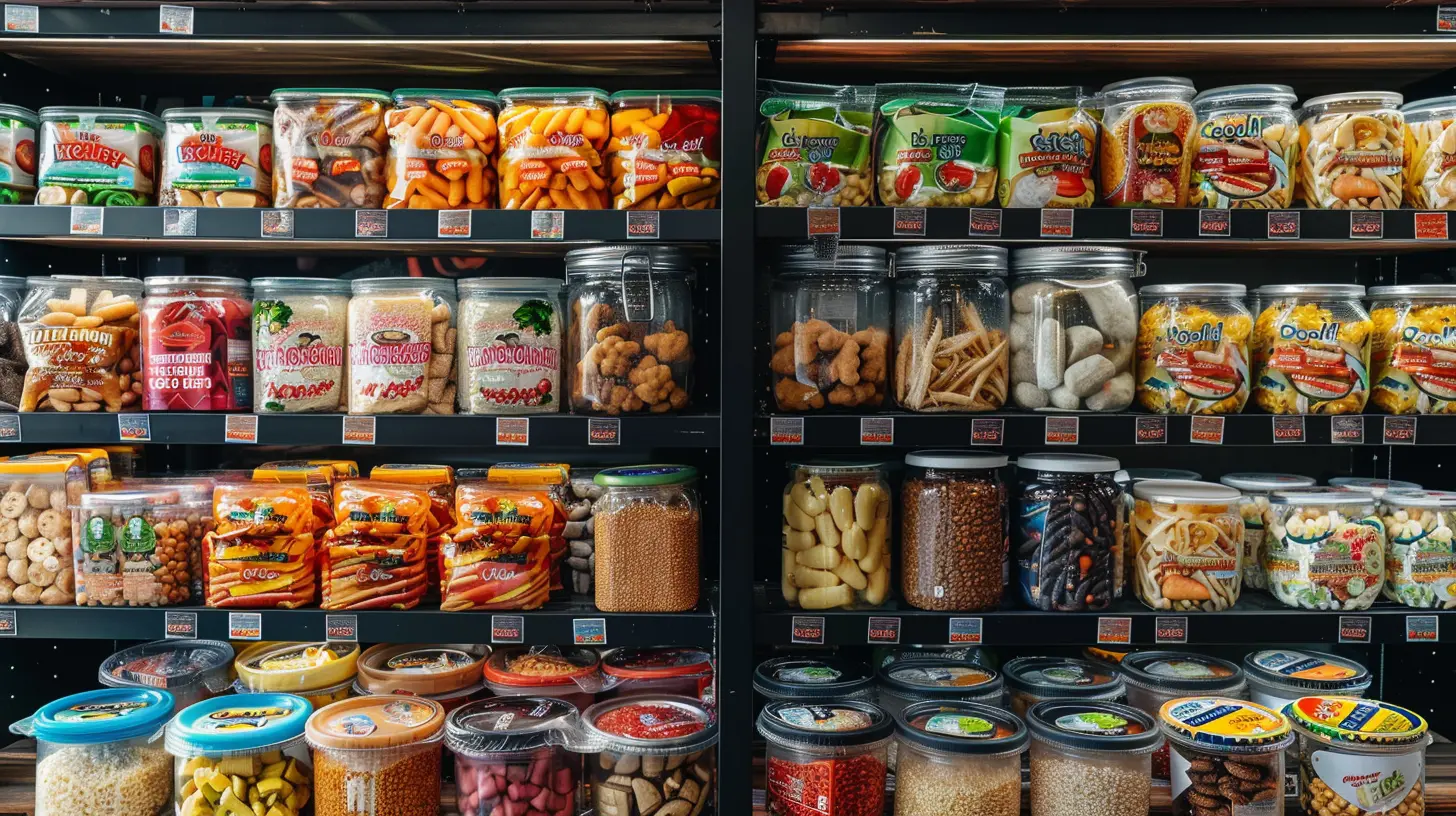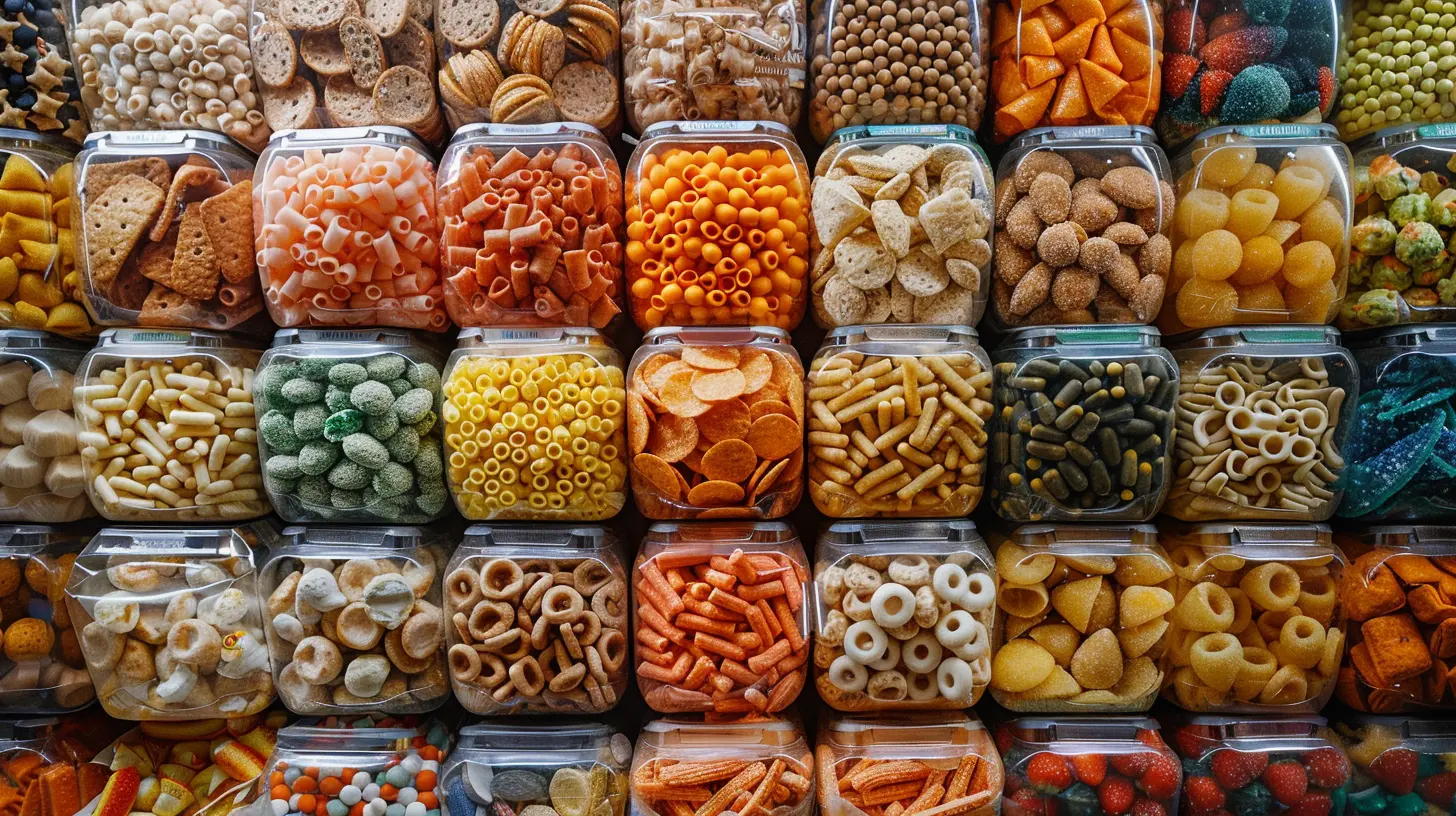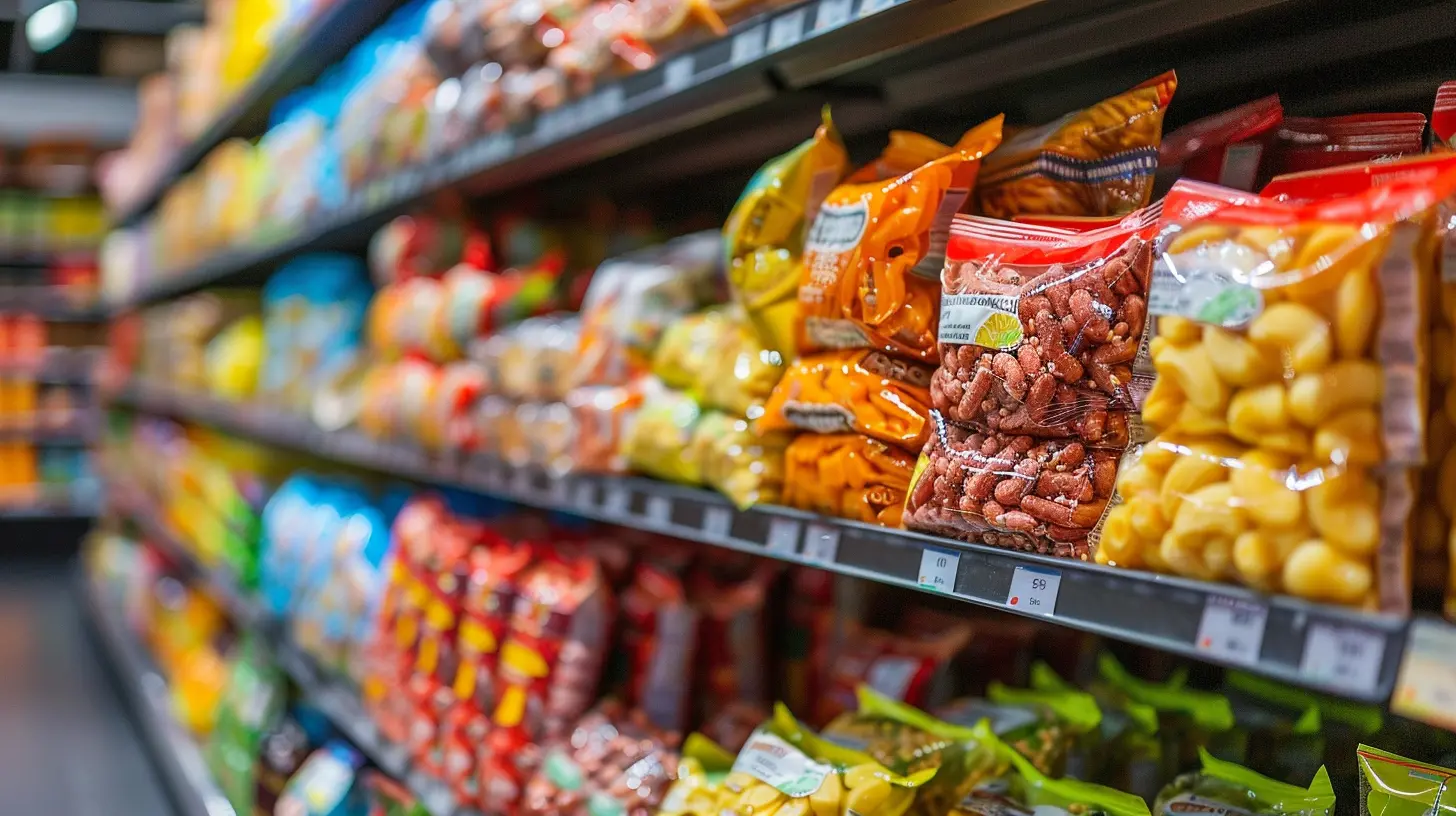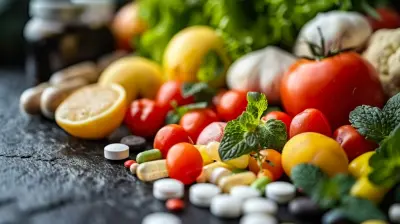The Hidden Dangers of Ultra-Processed Foods
10 October 2025
Ultra-processed foods (UPFs) are everywhere. They're quick, convenient, and often addictive. But have you ever stopped to think about what these foods are doing to your body? The truth is, they come with some serious health risks that most people don’t even realize. Let’s dive into the hidden dangers of ultra-processed foods and why you might want to rethink your next snack.

What Are Ultra-Processed Foods?
Ultra-processed foods are more than just processed—they’re packed with artificial additives, preservatives, sweeteners, and emulsifiers. These foods undergo multiple levels of processing, stripping them of their natural nutrients and replacing them with harmful chemicals. Think sugary drinks, instant noodles, packaged snacks, frozen meals, and even some so-called "healthy" protein bars.If the ingredient list sounds like a chemistry experiment with things you can't pronounce, it’s probably ultra-processed.

Why Are Ultra-Processed Foods So Popular?
Let’s be honest—these foods are everywhere because they’re convenient, tasty, and affordable. The food industry designs them to be addictive, with just the right mix of sugar, fat, and salt to keep you coming back for more. They also have a long shelf life, making them easy to store and transport.And let’s not forget marketing. Clever packaging and health claims like “low fat” or “high protein” make them seem like better choices than they really are.

The Hidden Health Risks
1. Increased Risk of Obesity
Ultra-processed foods are typically high in calories but low in nutrients. They often contain unhealthy fats, refined sugars, and artificial flavorings that encourage overeating. Because they lack fiber and protein, they don't keep you full for long, leading to a cycle of constant snacking and weight gain.Studies have linked UPFs to rising obesity rates worldwide. When you consume these foods regularly, your body struggles to regulate hunger, making it easier to overeat.
2. Increased Risk of Heart Disease
Ultra-processed foods are loaded with trans fats, excessive salt, and added sugars, all of which contribute to high blood pressure, high cholesterol, and inflammation—key risk factors for heart disease.A diet heavy in UPFs can lead to clogged arteries, increasing the risk of heart attacks and strokes. The more processed food you consume, the more stress you put on your heart.
3. Higher Chances of Type 2 Diabetes
Refined sugars and artificial sweeteners in ultra-processed foods cause blood sugar spikes, leading to insulin resistance over time. This sets the stage for type 2 diabetes.Unlike whole foods, ultra-processed options don’t provide steady energy. Instead, they trigger blood sugar crashes, leaving you feeling sluggish and constantly hungry.
4. Disrupts Gut Health
Your gut is home to trillions of bacteria that play a crucial role in digestion, immunity, and even mental health.Ultra-processed foods often contain artificial additives, preservatives, and lack fiber—damaging the gut microbiome. An unhealthy gut has been linked to issues like bloating, digestive disorders, and even mental health problems like anxiety and depression.
5. May Increase Cancer Risk
Some studies suggest a connection between ultra-processed food consumption and an increased risk of cancer. The preservatives, artificial colors, and flavor enhancers in these foods contain potentially carcinogenic substances.Additionally, foods packaged in plastic may expose you to harmful chemicals like BPA, which have been linked to hormone disruption and cancer risks.
6. Addictive Qualities Lead to Overeating
Ever noticed how hard it is to stop eating chips or cookies once you start? That’s not an accident.Ultra-processed foods are designed to be hyper-palatable, tricking your brain into wanting more. They activate the brain’s reward centers much like drugs, making them addictive and leading to excessive calorie consumption.
7. Negative Impact on Mental Health
A poor diet doesn’t just affect physical health—it can take a serious toll on mental well-being. Ultra-processed foods have been linked to higher risks of depression, anxiety, and cognitive decline.Researchers suggest that diets rich in ultra-processed foods can lead to chronic inflammation, affecting brain function and mood regulation.

How to Cut Back on Ultra-Processed Foods
Reducing UPFs doesn’t mean you have to give up all convenience. Here are some practical steps to help you transition to a healthier diet:1. Read Ingredient Labels
If you can’t recognize or pronounce most of the ingredients, it’s probably ultra-processed. Look for foods with short, simple ingredient lists made from whole foods.2. Cook at Home More Often
Preparing meals at home gives you control over what goes into your food. Whole ingredients like fresh vegetables, lean proteins, and whole grains make a huge difference.3. Choose Whole Foods
Opt for foods in their natural state—fruits, vegetables, nuts, seeds, and whole grains. These are packed with fiber, vitamins, and minerals that your body needs.4. Cut Back on Sugary Drinks and Snacks
Sodas, energy drinks, and packaged snacks are some of the worst offenders. Swap them for water, herbal teas, or fresh fruit instead.5. Be Wary of "Healthy" Processed Foods
Many products labeled "low fat," "sugar-free," or "high protein" are still ultra-processed. Always check the ingredients before assuming they’re good for you.6. Plan Your Meals
Meal prepping ensures you have healthy options ready, making it less tempting to grab ultra-processed convenience foods.7. Listen to Your Body
Pay attention to how certain foods make you feel. Whole foods provide sustained energy and mental clarity, while ultra-processed options often leave you sluggish and craving more.Final Thoughts
Ultra-processed foods may be convenient, but they come at a cost to your health. From obesity and diabetes to heart disease and mental health struggles, the risks are too significant to ignore.By making small, intentional changes to your diet, you can reduce your reliance on these unhealthy foods and nourish your body with real, whole foods. Your health is worth it!
all images in this post were generated using AI tools
Category:
Healthy EatingAuthor:

Eileen Wood
Discussion
rate this article
1 comments
Lorelei McQuade
Beneath the convenience and allure of ultra-processed foods lies a shadowy world of hidden dangers. What if the very ingredients meant to entice us are slowly unraveling our health? As you indulge, consider: Are these food innovations truly beneficial, or are they cloaked in secrets waiting to be uncovered?
October 17, 2025 at 3:34 AM

Eileen Wood
Thank you for your insightful comment! It's crucial to question the long-term effects of ultra-processed foods on our health, as their convenience often obscures potential risks. Awareness is the first step towards making informed dietary choices.


